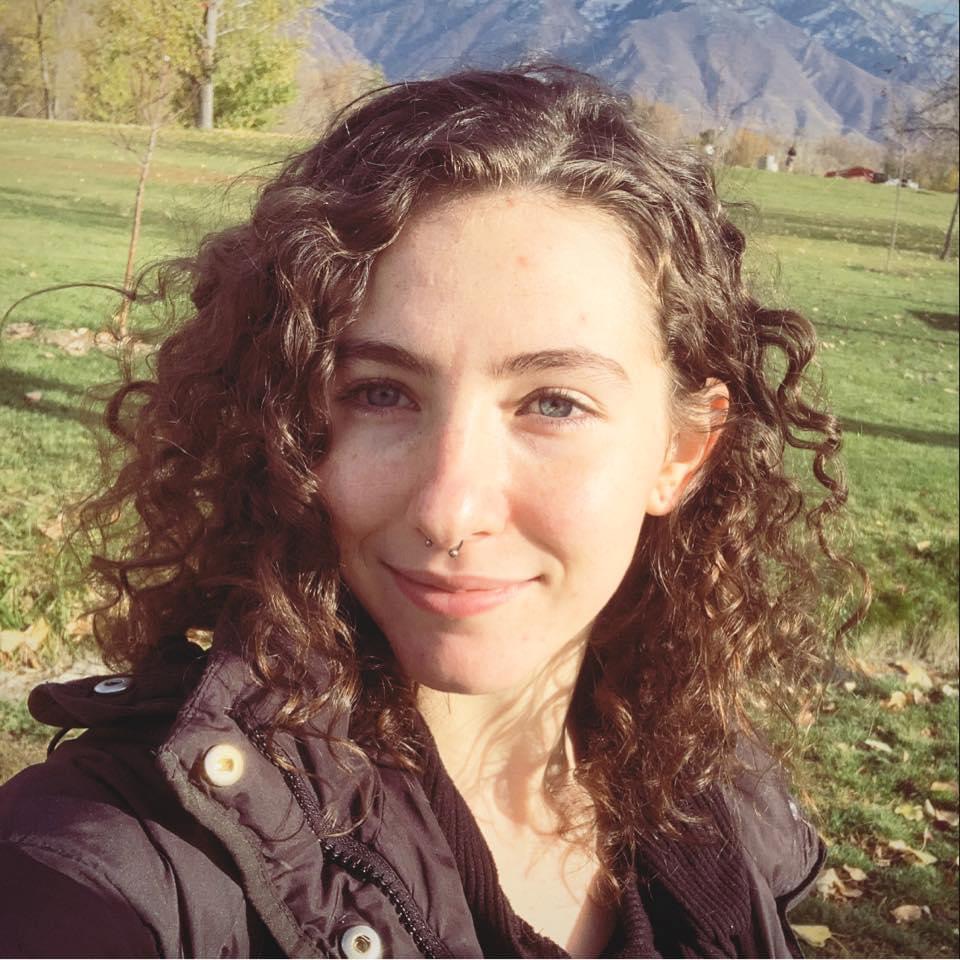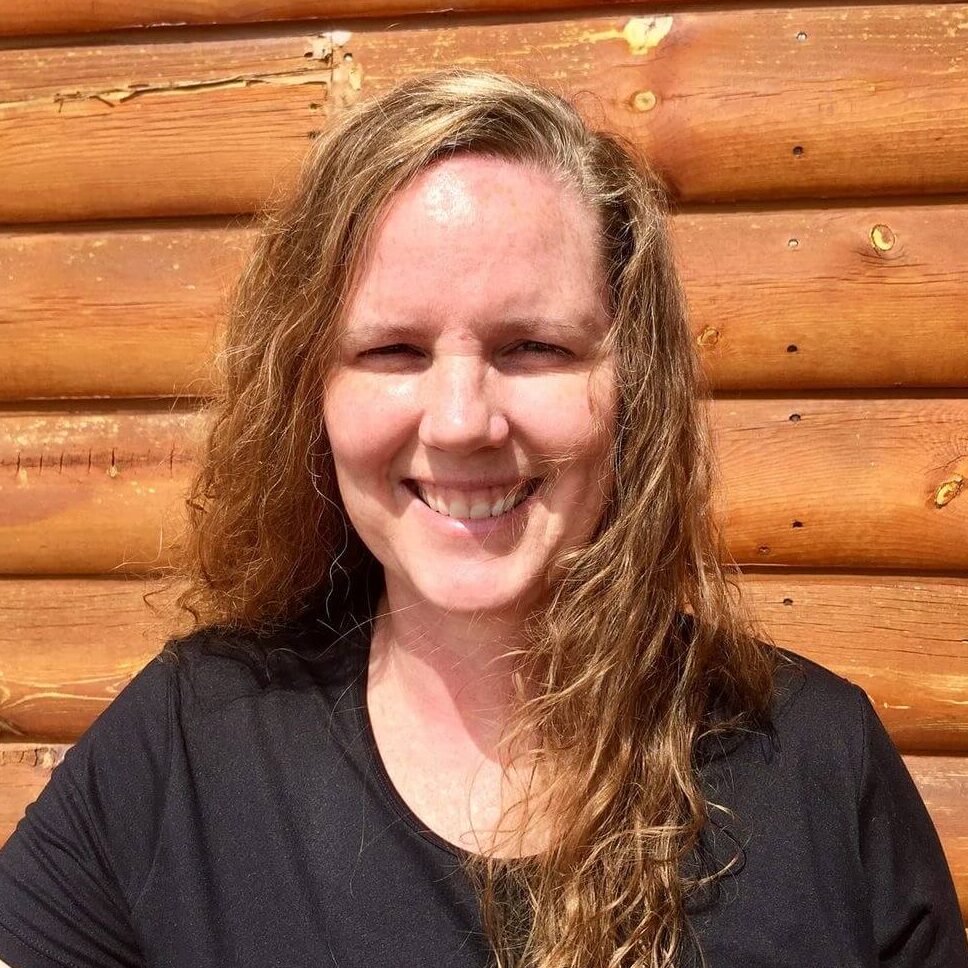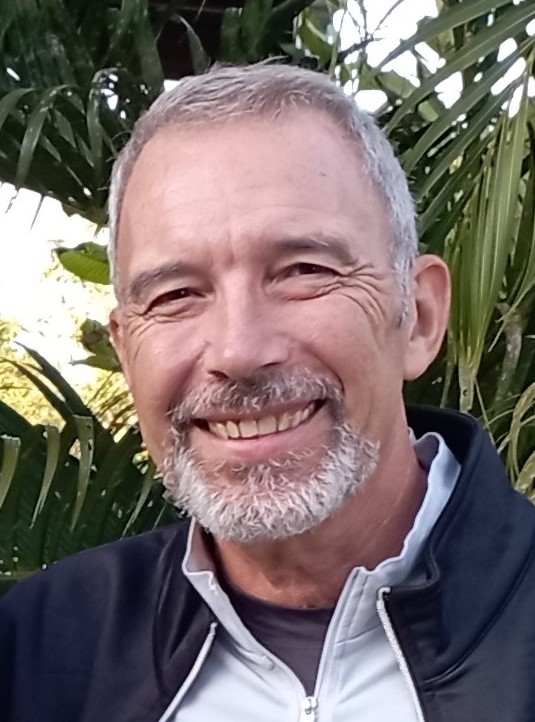My Personal Story, In Connection with The Marvelous Work and a Wonder
Nathan S. Cook
May 2, 2019
I met Christopher for the first time just a few days after my 41st birthday on December 22nd, 2013 at a symposium of the Marvelous Work and a Wonder (MWAW), where the events surrounding the martyrdom of Joseph and Hyrum Smith were discussed in tremendous detail. During the symposium, Christopher responded to one of my questions, and at the end of the symposium he came over to where my wife and I were seated (in the second row from the front) and kindly greeted us and shook our hands. Since this time, I have interacted with Christopher on multiple other occasions and have followed the MWAW very closely–reading each of the books and journal entries, watching and listening to the TV and radio broadcasts, and attending the symposiums and other events hosted by Christopher, the Marvelous Work and a Wonder, The Voice of Anonymous, and The Humanity Party.
There’s no doubt that this work has affected me more profoundly than anything else I have encountered in my life, and my life has been completely changed because of it. The knowledge and understanding I have gained from studying the truths revealed in this work have been exactly what I have been searching for my whole life. Prior to encountering the MWAW, I had studied many diverse fields of knowledge including religion, psychology, new-age spiritualism, philosophy, physics, computer science, economics, sociology, politics, world history, and other areas of study trying to understand the human condition and the causes and solutions to our human problems. I was also seeking answers that could help me in my own life. Throughout my searching I found many partial truths and clues, but I never came to a complete understanding, nor did I arrive at the answers that could change the suffering and misery that was and is experienced daily by billions of human beings on this planet. Neither did I come to a complete understanding about myself and how I should live my life in order to experience more peace, happiness, and fulfillment.
For a time, I found many answers in religion and psychology. Religion seemed to have an answer for the deep seated feelings I had that there was a higher, wiser, more noble or spiritual part of me and others (religion called this God or the Holy Spirit) than that which I/we normally had access to. I knew that at times I could draw on a wisdom that was much deeper and personal than what I had learned or had been exposed to by the outside world. On the other hand, the field of psychology (in which I obtained a Master’s degree) filled in many of the gaps for me that religion seemed to leave vague and general. It helped me understand and accept myself and others at a much deeper level, and also understand why people often do things that seem irrational or cause harm to themselves and/or others. Instead of blaming the devil (like religion does) for the bad things that people do, psychology had an answer that made much more sense to me: We all have imperfect brains and biology, as well as imperfect programming (such as learned falsehoods and painful memories) that exerts a negative influence on our psyche that is often hard to overcome, especially when the environment (the world) is non-supportive or overly harsh and unforgiving. My study of psychology convinced me that in order to be more successful at solving our human problems, we should lean more towards a compassionate and positive viewpoint that regarded all humans as equals who were fundamentally good (think of how each of us were as little children) and who could be rehabilitated with the right kind of help and environment, regardless of how they had gone wrong in life. I had certainly had my own challenges in life, and my problems never got any better until I took a compassionate approach to myself, loving myself and believing in myself (and seeing myself as equal to others rather than less than them), even when nobody else seemed to view me this way at the time.
Still, religion and psychology couldn’t give me an answer as to why society as a whole was the way it was, and why so many people lived in a constant state of poverty, violence, war, and economic disadvantage. I turned to philosophy, sociology, world history, and economics in an attempt to understand the reason, and perhaps the solution to this perplexing and disheartening human condition. I learned that world history was replete with examples of one group, race, or nation of people dominating and subjugating another group of people. It seemed that whatever group had the better resources, weapons, strength, or technology dominated those who were less fortunate or less ambitious by nature. I also learned that money, economics, and economic policy was perhaps the most subtle, yet stealth technology or weapon ever developed by humankind. A small group of people could enact and control the economic policies and laws that controlled access to all resources, technologies, weapons, goods, and services. Shrewd economic policy and law would allow a very small group of people to dominate millions or billions of other people, all the while ensuring that the masses were never aware of what was going on or that they were in fact being covertly dominated by another unseen and unknown group of people. The laws and policies put in place by the rich were designed to benefit the rich and ensure that those who already had great resources and wealth would always be able to maintain their advantage and control of the masses who weren’t so advantaged.
This last problem, which I struggled to understand for several years before encountering the MWAW and Humanity Party–the problem of money, economic policy, and corrupt law, along with entrenched poverty, class distinctions, inequality, suffering, violence, and war–seemed to me to be possibly insurmountable to overcome. It seemed that everyone was going about trying to solve this problem in all the wrong ways–if they were even aware of the problem or concerned about it at all. Religion’s answer was to simply ask faithful believers to donate as much as possible in tithes and offerings to their church or a charity, which would then donate a fraction of this money to helping the poor (after spending most of it on expensive church buildings or the salaries of the executives who “administered” the charity). This seemed to me to be a very inefficient and impractical way to solve poverty, since the masses who donated to their religions didn’t have near enough money to make a dent in the 3 1/2 billion people who lived in poverty across the world. The number of people with little or no money outnumbered the amount of people who had an abundance of money, and the rich who did have money were never going to donate enough of their billions to lift the billions of poor people out of poverty. Furthermore, what was needed most in the poor areas of the world was an economic infrastructure and environment that gave employment opportunities to the people, rather than the random temporary handouts that charities and philanthropists provided. The solution proposed by psychologists, sociologists, self-help gurus, new-age spiritualists, personal development and success coaches, etc, was to simply make each individual or organization more capable, effective, or “higher functioning.” In this way, these individuals and organizations would theoretically become more “successful” and wealthy, and thereby better able to provide for themselves and perhaps donate more to charitable causes. These solutions always ignored the problem of corrupt economic policy and law, which ensured that the large corporations and individuals who already had the money and resources were always going to be able to out-maneuver and out-compete the small businesses and individuals that didn’t have the same resources. Such ubiquitous, corrupt policies ensured that the disadvantaged remained disadvantaged. A very few “small guys” might make it up the ladder to success (if they at least happened to be born into an environment where there was at least some economic infrastructure and opportunity), but the vast majority were doomed to work hard all the days of their lives to achieve a moderate if not meager standard of living. Government’s answer was to raise or lower taxes, depending on the philosophy of the political party. Perhaps more jobs would be created by the rich if taxes were lowered. Or perhaps the government could create more social programs to help the poor if taxes were raised. Both of these approaches have been tried in various forms throughout history, but the math never works. Something has always been missing from the equation. The economic policies and laws always wind up siphoning the money to the few at the top who own the land, the properties, and the businesses, and who decide the wages of their workers, the rent charged to their tenants, and the cost of food, services, and other basic necessities of life.
So this was the place where I stood before I encountered and investigated the Marvelous Work and a Wonder and The Humanity Party. I was frustrated that despite the best efforts and intentions of religious leaders, psychologists, sociologists, scientists, government leaders, and economists, and others, this world was still a place of suffering, oppression, inequality, and misery for billions of human beings. I had come to the conclusion that the solutions that were out there were inadequate, incomplete, and over-simplified. Furthermore, as I still believed in God, I was wondering what was in God’s mind. Was it his intention to ever give us “further light and knowledge,” or was he content to let us wallow around in the dark for several more centuries? I dimly remembered all the promises in the scriptures, and especially in The Book of Mormon that said “ask, and ye shall receive; knock, and it shall be opened unto you,” but I was beginning to feel that these were empty promises, especially when they were so often countered by words from God’s chosen mouthpieces, such as “sometimes God says no,” and “God will answer your prayers in his own timing.” I was becoming more and more convinced that God, if he was really the kind of God that religion had taught him to be, was not going to answer my prayers, or the prayers of the world’s suffering, anytime soon. In fact, I was starting to believe I might not get anymore answers from him, other than the ones I already had, in my entire lifetime. Because of my despondency, and the fact that I was worn out by my searching with such little results, I was starting to give up. Looking back, I seemed to have all but forgotten one of the more cryptic passages of scripture in The Book of Mormon. This mysterious passage of scripture had fascinated my mind, captured my imagination, and filled me with hope and joy when I first learned about it in my high school senior year seminary class. Here are the verses of scripture from The Book of Mormon that had such a powerful effect on my mind over two decades ago:
“Come unto me, O ye house of Israel, and it shall be made manifest unto you how great things the Father hath laid up for you, from the foundation of the world; and it hath not come unto you, because of unbelief. Behold, when ye shall rend that veil of unbelief which doth cause you to remain in your awful state of wickedness, and hardness of heart, and blindness of mind, then shall the great and marvelous things which have been hid up from the foundation of the world from you—yea, when ye shall call upon the Father in my name, with a broken heart and a contrite spirit, then shall ye know that the Father hath remembered the covenant which he made unto your fathers, O house of Israel. And then shall my revelations which I have caused to be written by my servant John be unfolded in the eyes of all the people. Remember, when ye see these things, ye shall know that the time is at hand that they shall be made manifest in very deed.”
–Ether 4:14-16, The Book of Mormon
Although I had more or less forgotten this scripture, or had stopped believing that it had any real meaning or pertinence to my life or in my lifetime, I was still motivated to continue searching, due to my frustration with the many aspects of my own life that seemed meaningless and absurd based on the understanding and perspective I had arrived at up to that point. Whenever I sat still and gave up on my search, I would rapidly descend into depression and despair. In order to ward off these unhappy emotions, I constantly felt compelled to continue my search for understanding. In the meantime, I had been introduced to a couple of books that had been produced by Christopher and the Marvelous Work and a Wonder. One of the books claimed to be “The Sealed Portion of The Book of Mormon,” and the other was a book called “Human Reality: Who We Are, and Why We Exist.” Since I was researching economics at the time, and was searching for a viable plan that could solve poverty and inequality, it was recommended to me that perhaps I should start by reading chapter 18 of Human Reality, which I was told contained a well thought out and viable plan for abolishing poverty.
To make a long story short, I was not disappointed by what I read in chapter 18 of that book (neither was I disappointed by the book Human Reality as a whole). It contained the most brilliant plan I had ever come across that could easily and unarguably eliminate poverty in a very short period of time. In addition, this was a plan that would work within the current economic structure of the world, and in harmony with all aspects of human nature (including the so called negative aspects of human nature, such as greed and selfishness) and nature itself. This plan would completely preserve free will, would support the right of all individuals to pursue their individual desires of happiness, and would never require the redistribution of wealth, wherein the rich would be required to give up their wealth to the poor. It was the most intelligent plan I had ever seen, and would literally create an abundance of new wealth along with a booming economy, all the while equalizing the playing field and unleashing the creative potential of billions of human beings across the world who had previously been locked in the chains of poverty, ignorance, and lack of opportunity.
After reading Human Reality, I decided to take on The Sealed Portion of The Book of Mormon with a sincere heart and real intent. I knew that I couldn’t stop reading the book until I knew for certainty, one way or another, whether the book was true or not. Once again, this book did not disappoint. It took me through each of the belief systems I had developed over the years as I was brought up in my religion, and expertly countered all the beliefs and practices that were contrary to the gospel of Jesus Christ. It gave a recounting of the history of the world, and of human nature, and revealed in plainness the circumstances under which the world had allowed itself to be deceived time and time again. Through the words of Moroni and the brother of Jared (according to the stories in The Sealed Portion), I was receiving many of “the great and marvelous things which [had] been hid up from the foundation of the world from [me/us/the world].” But in order to receive the remaining things that “the Father had laid up for [me/us/the world],” I had to continue my search. And so I did just that, reading the remaining books of the MWAW, including the book of which it was said, “And then shall my revelations which I have caused to be written by my servant John be unfolded in the eyes of all the people.” But the search didn’t end there. It turned out we had a “true messenger” that had been called by the “Father” who would be able to give to us the “further light and knowledge” we were seeking, if we were truly seeking it. The so called “mysteries of God,” as it turned out actually could be understood in full.
So, where does this leave me–and us–now? Are all the problems of the world now going to disappear because the world has now been presented with the perfect plan of how to solve all its problems, and we have a perfect knowledge of who we are as humans, and why we exist? I wish that were the case. Unfortunately, the fact is that while the plan and understanding is out there in plainness, and available free of charge to everyone in the world, there is such a thing as free will, which happens to be the most important aspect of our lives. Knowledge can’t be forced on the world. This would disrupt the purpose for our current existence as mortals, which in many ways is like a school we decided to enroll in so that we could pick up experience that was in opposition to our true nature and existence as beings that actually live on a higher plane than this mortal existence. The humans who are alive at this time may not be ready for the truths of the Marvelous Work and a Wonder and The Humanity Party. And in fact, they might not ever be ready. If they are not ready, then they will not search for or accept the truths given by the MWAW. And if this is the case, then the world will be left to itself to experience what happens when the people of the earth do not support human equality, nor seek to relieve the suffering of so many of their fellow human beings who have nearly lost all hope and are on the verge of sheer desperation.
There is a scripture in the Book of Mormon that hints at what is in store for this world if it cannot accept the Real Truth that all humans are equal and should be treated as such. Here is the passage:
1 Nephi 14:7. For the time cometh, saith the Lamb of God, that I will work a great and a marvelous work among the children of men; a work which shall be everlasting, either on the one hand or on the other—either to the convincing of them unto peace and life eternal, or unto the deliverance of them to the hardness of their hearts and the blindness of their minds unto their being brought down into captivity, and also into destruction, both temporally and spiritually, according to the captivity of the devil, of which I have spoken.
It’s possible that this world will fail, and instead of becoming convinced “unto peace and life eternal,” the world as a whole will be delivered “to the hardness of their hearts and the blindness of their minds….” I hope this will not be the case, but if it is, then for those of us who have come to know the Real Truth about our existence as human beings (as presented through the MWAW), all will be well for us during mortality nonetheless. For those who have come to understand and experience these Real Truths, we know who we Truly are and why we exist. We know that there is nothing at all to fear or worry about, including death. We have peace. Our understanding of the “mysteries of God” (and the mysteries of human existence) gives us great patience, acceptance, and tolerance towards ourselves and others, and the seeming horrors that are occurring on the earth. We understand that ultimately everyone of our “True Selves” will learn the lessons we came to learn. We understand that it all ends well, despite the temporary suffering and difficulties that we as “Advanced Humans” have chosen to put ourselves through as we go through mortality. So, in summary, I have come to learn, as has everyone who has embraced this work and the teachings of Christopher the messenger, that life and human existence in its entirety is ALL a MARVELOUS WORK AND A WONDER!
Nate Cook
801-641-6966
Nathan_S_Cook@yahoo.com
I was born in Utah, and grew up here all my life. My mom left the Mormon church when […]
What I know for sure: NOTHING I remember having a conversation with my oldest son about 10 years […]
Hi. My name is John Andrei Dalisay. I want to share my own unique story of how and […]




